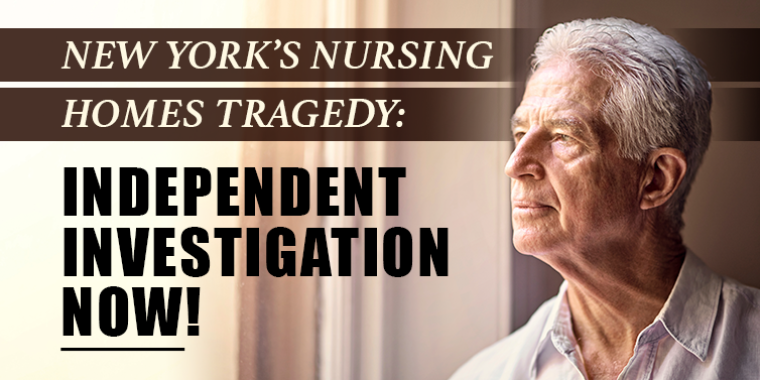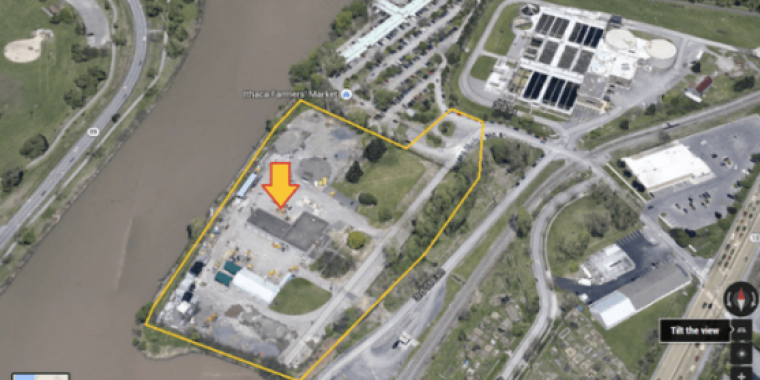
O’Mara continues effort to delay action by NY's ‘Farm Wage Board’: Delivers January 20th testimony warning that lowering overtime threshold would further threaten already at-risk family farms and rural economies (READ MORE)
January 20, 2022
-
ISSUE:
- Family Farms

Elmira, N.Y., January 20—State Senator Tom O’Mara (R,C,I-Big Flats) continued his efforts today to voice strong opposition to any move by the state’s “Farm Laborers Wage Board” to roll back the current 60-hour-per-week overtime threshold for farm workers.
The Farm Wage Board is in the process of holding three additional virtual public hearings this month to hear testimony from farmers and other agricultural employers, farm workers, legislators, academic experts, and others. Hearings were held on January 4 and earlier this week on Tuesday.
The final hearing is today and O'Mara is scheduled to testify. [Senator O'Mara's written testimony is attached above.]
The meeting can be viewed here: https://dol.ny.gov/farm-laborers-wage-board-hearings.
O’Mara, who strongly opposed the legislation creating the Wage Board in 2019, said, “I was opposed to this action from the start, especially the creation of this Wage Board. In fact, when this legislation was being debated I voiced my fear on the floor of the Senate about giving such far-reaching authority to an unelected, unaccountable body. It is critical for upstate legislators, for whom the farm economy is a foundation of communities we represent, to keep close watch on a Wage Board now holding the future of so many farmers and rural economies in its hands. This is the worst possible time to risk mandating and regulating more farms out of business, and that is exactly what’s at stake here.”
Farm leaders from throughout the state remain strongly opposed to lowering the farm worker overtime threshold to 40 hours. According to the New York Farm Bureau, Northeast Dairy Producers Association, Grow NY Farms, and others, such a move would put some farmers out of business, reduce employment opportunities in New York for farm workers, and significantly weaken the state’s leading agricultural industry.
O’Mara has joined other members of the Senate Republican Conference urging Governor Kathy Hochul to delay any further action by the Wage Board until at least December 31, 2024.
In a December 27, 2021 letter to the board, O’Mara and his Republican colleagues wrote, in part, “The long lasting effects of the FLFPA are not just seen and heard through anecdotal stories we hear when we visit farms in our districts, but are supported by a recent state-funded report issued by researchers at Cornell University. The study found that if the overtime threshold was lowered to 40 hours, two-thirds of dairy farmers would make significant changes to their operation, including leaving the industry or investing out of state, and half of fruit and vegetable farmers indicated they would decrease their operations or exit the industry.”
The threshold was put in place as part of a comprehensive “Farmworkers Fair Labor Practices Act” enacted by former Governor Andrew Cuomo and the Legislature in 2019. O’Mara voted against the act and at that time singled out the Wage Board provision for particular opposition. The three-member board was granted the power to change the law without the Legislature’s approval.
O’Mara currently co-sponsors legislation (S2690) that would extend the date for the Board to submit its final report to December 31, 2024. The legislation would give the Board more time to collect and assess data that would provide a more definitive picture of the impact of the 60-hour threshold on the finances and operations of New York farms, as well as consider additional factors including the COVID-19 impact on the agricultural industry.
O’Mara and the Senate GOP conference, together with farm industry advocates, stress that the board must take adequate time and have the appropriate data to assess the law’s full impact – as well as the impact of COVID-19 -- before recommending changes.
It has been reported that farm labor costs in New York State increased 40 percent over the past decade and that the 2019 law could result in another crippling 44-percent increase in wage expenses.
Total farm labor costs are at least 63 percent of net cash farm income in New York, compared to 36 percent nationally.
Share this Article or Press Release
Newsroom
Go to Newsroom


